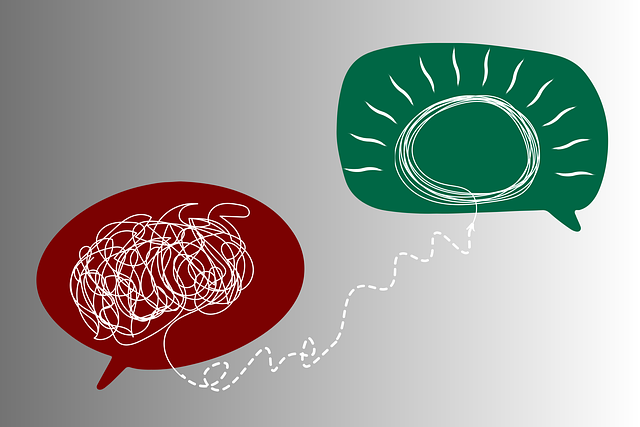Centennial Blended Families Therapy offers tailored strategies for managing mood regulation in diverse, culturally-rich families, leveraging open emotional expression and coping mechanism identification. This holistic approach, informed by cultural sensitivity, strengthens family resilience, promotes mental health, and navigates complex dynamics. Through personalizing strategies like journaling, meditation, exercise, and time management, therapy empowers families to address unique challenges and foster stronger connections. Culturally competent healthcare providers play a crucial role in risk assessment and inclusive care for optimal well-being within blended family structures.
In the dynamic landscape of modern family structures, especially within Centennial blended families, effective mood regulation is paramount. This article delves into the intricate world of mood management, offering insights tailored to the unique challenges faced by these families. We explore strategies for navigating emotional dynamics, highlighting practical approaches to foster stability and harmony. Additionally, we examine the transformative power of therapy in addressing complex issues within Centennial blended families, emphasizing its role as a potent tool for lasting positive change.
- Understanding Mood Regulation in Blended Families
- Strategies for Effective Mood Management
- The Role of Therapy in Centennial Blended Families
Understanding Mood Regulation in Blended Families

In the context of Centennial blended families, understanding and managing mood regulation is a nuanced process that requires tailored strategies. These families often navigate complex emotional landscapes due to the integration of diverse individuals with varying life experiences and cultural backgrounds. This unique dynamic can impact mental health and emotional well-being, emphasizing the need for specialized approaches.
Centennial blended families therapy, infused with principles of cultural sensitivity in mental healthcare practice, plays a pivotal role in promoting emotional well-being. By acknowledging and respecting cultural differences, therapists create a safe space for individuals to express their feelings openly. This holistic approach not only facilitates individual mood regulation but also strengthens the family’s collective resilience. Moreover, integrating emotional well-being promotion techniques allows families to identify and employ healthy coping mechanisms, thereby enhancing their overall mental health and fostering stronger bonds. Risk assessment for mental health professionals is also crucial in these settings, ensuring that practitioners are equipped to handle potential challenges arising from cultural complexities and family dynamics.
Strategies for Effective Mood Management

Maintaining a stable mood is essential for overall well-being, especially within the dynamic context of modern life. For those navigating complex emotional landscapes, particularly in the case of blended families, Centennial Blended Families Therapy offers valuable insights and tools to manage and enhance mood regulation. This approach recognizes that each individual’s emotional experience is unique, shaped by a myriad of factors including past traumas, cultural backgrounds, and current life stressors.
Effective mood management involves a combination of strategies tailored to the specific needs of every person. One key component is cultivating self-awareness, enabling individuals to identify triggers and patterns in their emotional responses. This awareness can be fostered through various techniques such as journaling, meditation, or therapy sessions that encourage exploration of feelings. Additionally, establishing healthy coping mechanisms like regular exercise, engaging social connections, and effective time management plays a crucial role in Mental Illness Stigma Reduction Efforts by promoting resilience and Anxiety Relief. It’s also vital to address any underlying mental health concerns through professional support, where healthcare providers equipped with Cultural Competency Training can offer tailored interventions, ensuring inclusive and effective care for diverse communities.
The Role of Therapy in Centennial Blended Families

In the context of Centennial Blended Families, therapy plays a pivotal role in fostering healthy mood regulation strategies. These families, characterized by their diverse and evolving dynamics, often encounter unique challenges that can impact individual and collective mental well-being. Professional therapy provides a safe space for open communication and emotional processing, helping family members navigate complex relationships and past traumas. By promoting understanding and empathy, therapy enables blended families to build stronger connections and develop effective coping mechanisms for managing stress and conflicts.
Centennial Blended Families Therapy goes beyond individual support; it facilitates inter-generational learning and emotional intelligence. Through structured sessions, family members can learn valuable techniques for stress management, such as those offered by workshops organized by mental health advocates. Moreover, therapy emphasizes the importance of depression prevention by equipping family members with tools to recognize early warning signs and implement proactive strategies for maintaining a positive mood. This holistic approach ensures that each member feels valued, supported, and empowered within their blended family structure.
In conclusion, navigating the complexities of mood regulation within Centennial Blended Families requires a multifaceted approach. Understanding the unique dynamics and implementing effective strategies, such as those discussed in this article, can significantly enhance emotional well-being. The role of therapy cannot be understated, especially for families seeking to unravel the intricate relationships and challenges inherent in blended households. By embracing professional support, these families can foster healthier communication, improve mood management, and create a more harmonious environment for all members.











